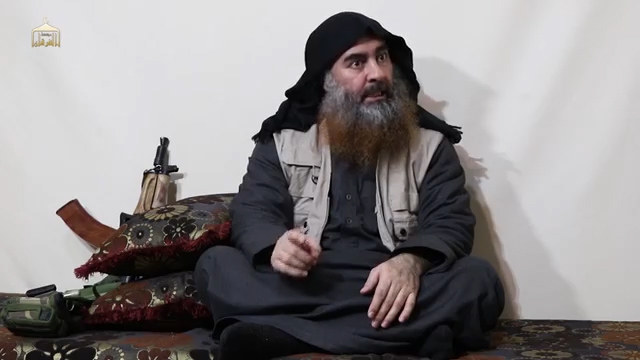BAGHDAD: Daesh remains a potent threat around the world despite reduced capabilities, Iraqi Prime Minister Adel Abdul Mahdi said on Tuesday, adding its leader Abu Bakr Al-Baghdadi had made his latest video appearance in a "remote area."
Abdul Mahdi did not say which country that area was in.
A video released late on Monday by Daesh's propaganda wing showed a man it said was Al-Baghdadi in what would be his first appearance since he declared the extremists' now-defunct "caliphate" five years ago.
The authenticity and date of the recording could not be independently verified.
Abdul Mahdi said Baghdadi's appearance was an attempt to boost militants and that Daesh would attempt to carry out more attacks.
"Regarding the location of Baghdadi, we can't give intelligence information right now but it's clear from the video that he's in a remote area," Abdul Mahdi said at a news conference on a visit to Berlin.
Al-Baghdadi, an Iraqi, is believed to be hiding out in an isolated area of either Iraq or Syria, part of vast desert regions Daesh once held and from where it is thought the extremists are now waging regular insurgent-style attacks against security forces in both countries.
Hisham Al-Hashemi, a security adviser to the Iraqi government, said officials had narrowed his whereabouts from 17 to a possible four locations.
"These are in the desert of Iraq's Anbar (province) or in the (eastern) desert of Homs in Syria," he said.
Abdul Mahdi said Daesh's capabilities had "greatly reduced" but that the group still posed a threat.
"Daesh is not just a small organisation, it's widespread and will try to put confidence back in its militants and carry out acts such as those in Sri Lanka," he said, referring to the Easter Sunday attacks claimed by the group which killed more than 250 people.
In the 18-minute video, a bearded man with Al-Baghdadi's appearance says the bombings in Sri Lanka were Daesh's response to losses in its last territorial stronghold of Baghouz in Syria.
The video would be the first from Al-Baghdadi since he was filmed in the Iraqi city of Mosul in 2014. More recent speeches have been released as audio recordings.
A US-backed campaign ended Daesh's control of territory in Iraq in late 2017 and in Syria last month, nearly five years after the group took over vast areas in both countries.














